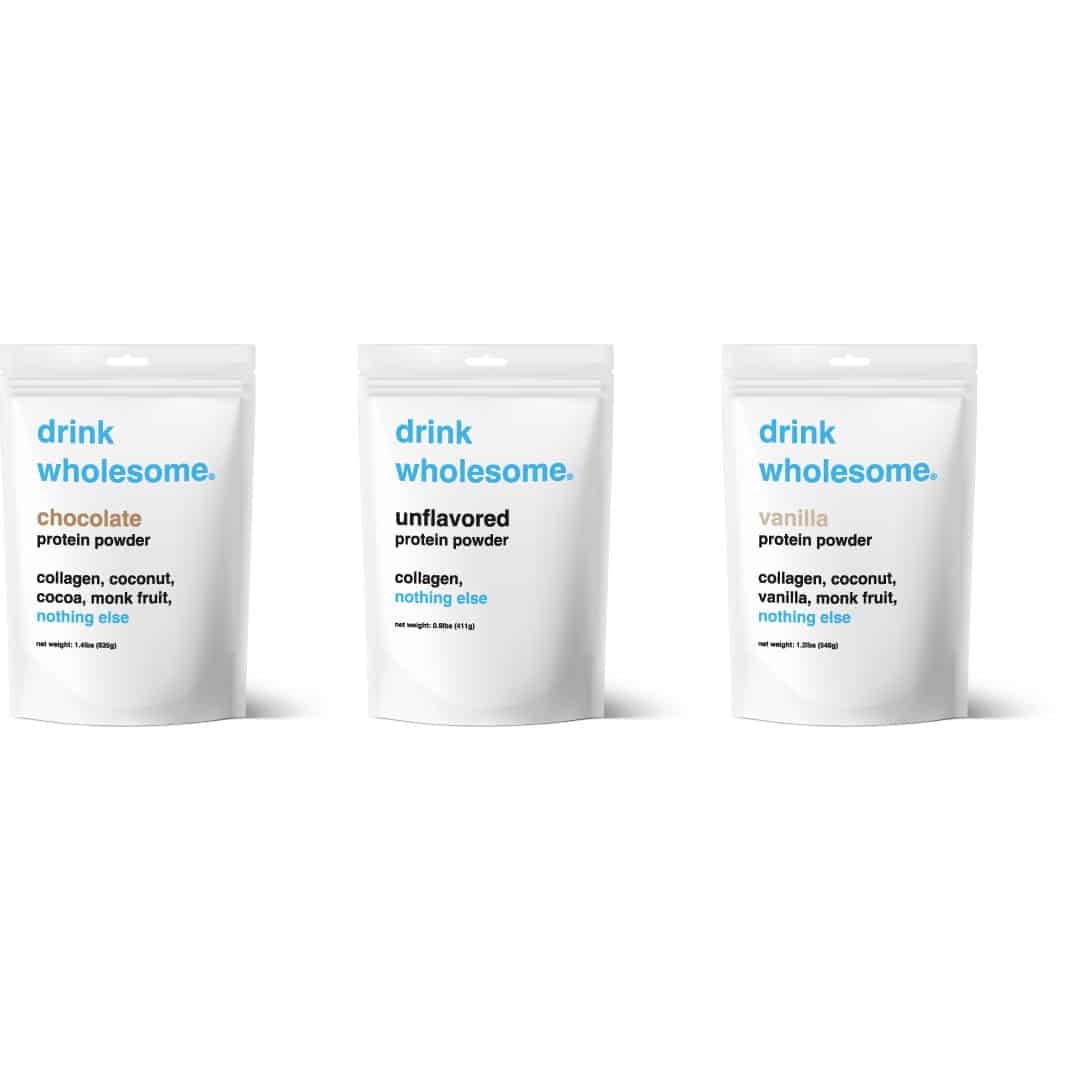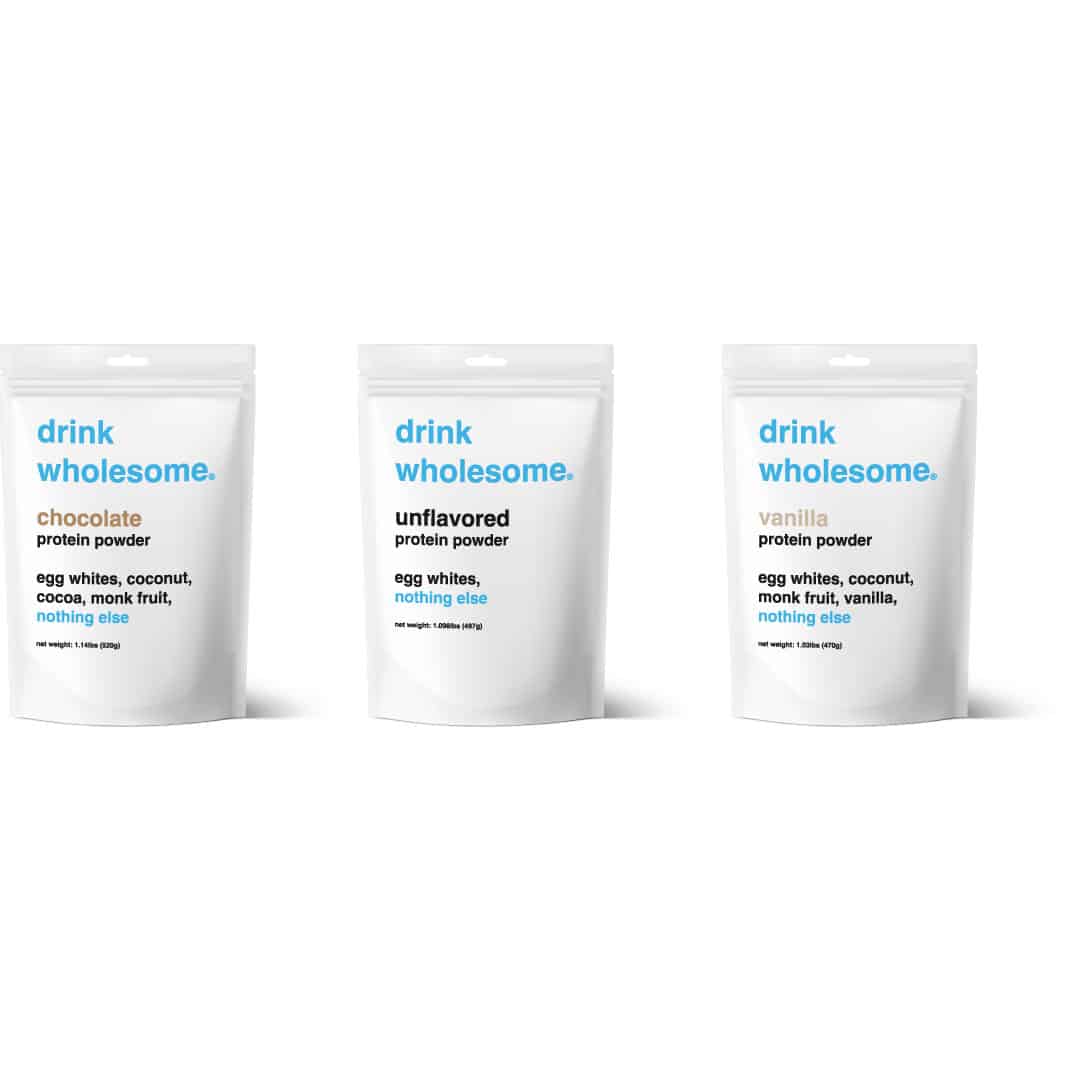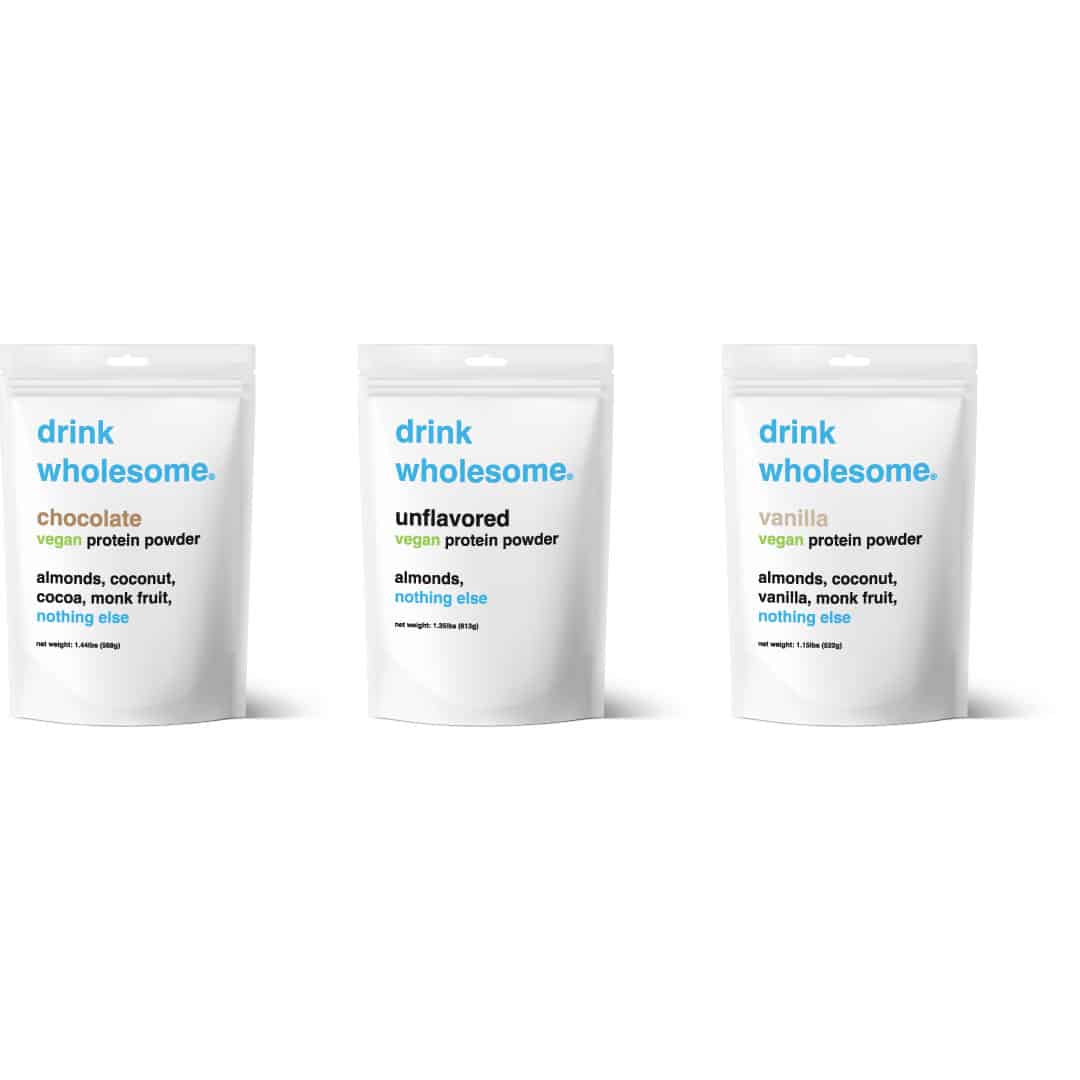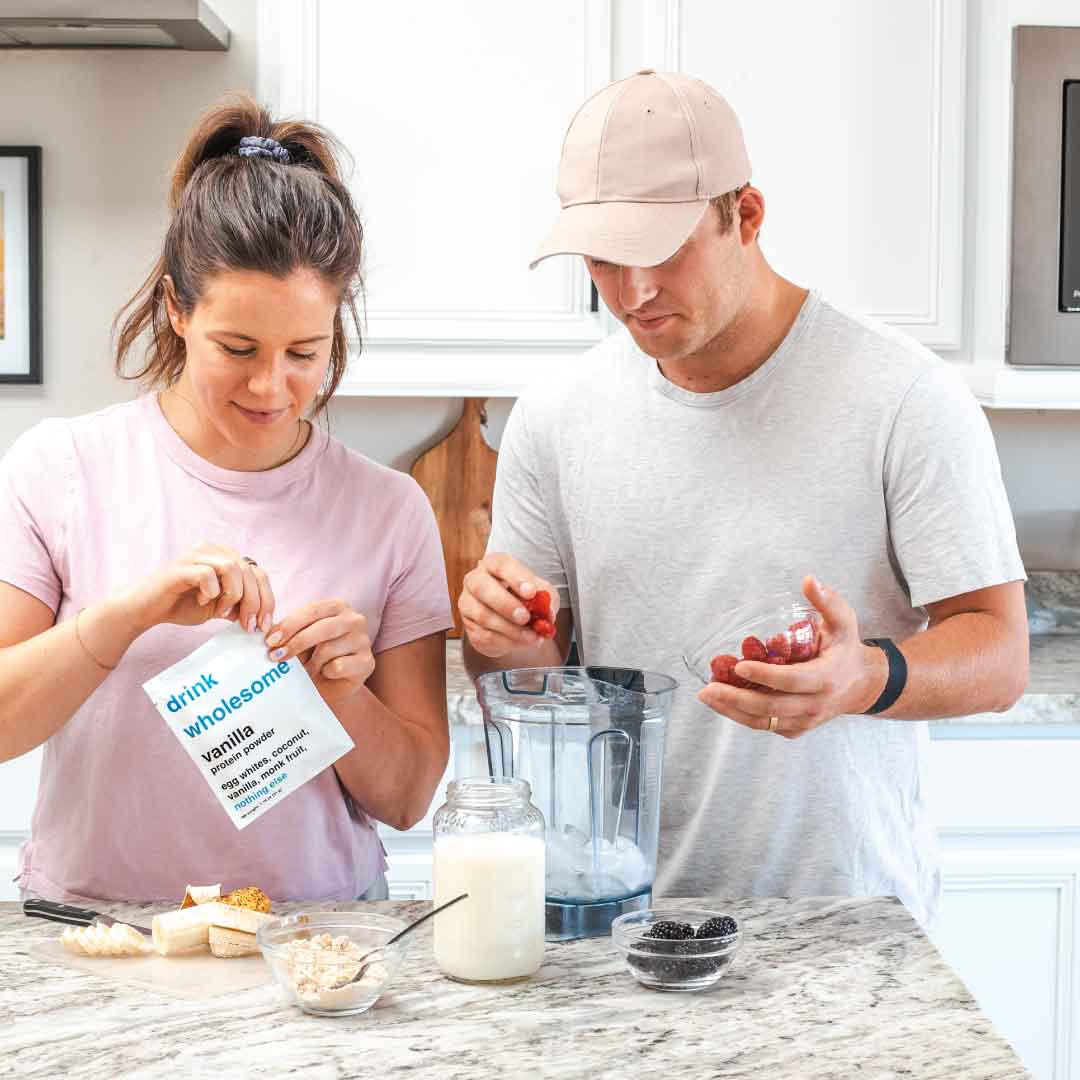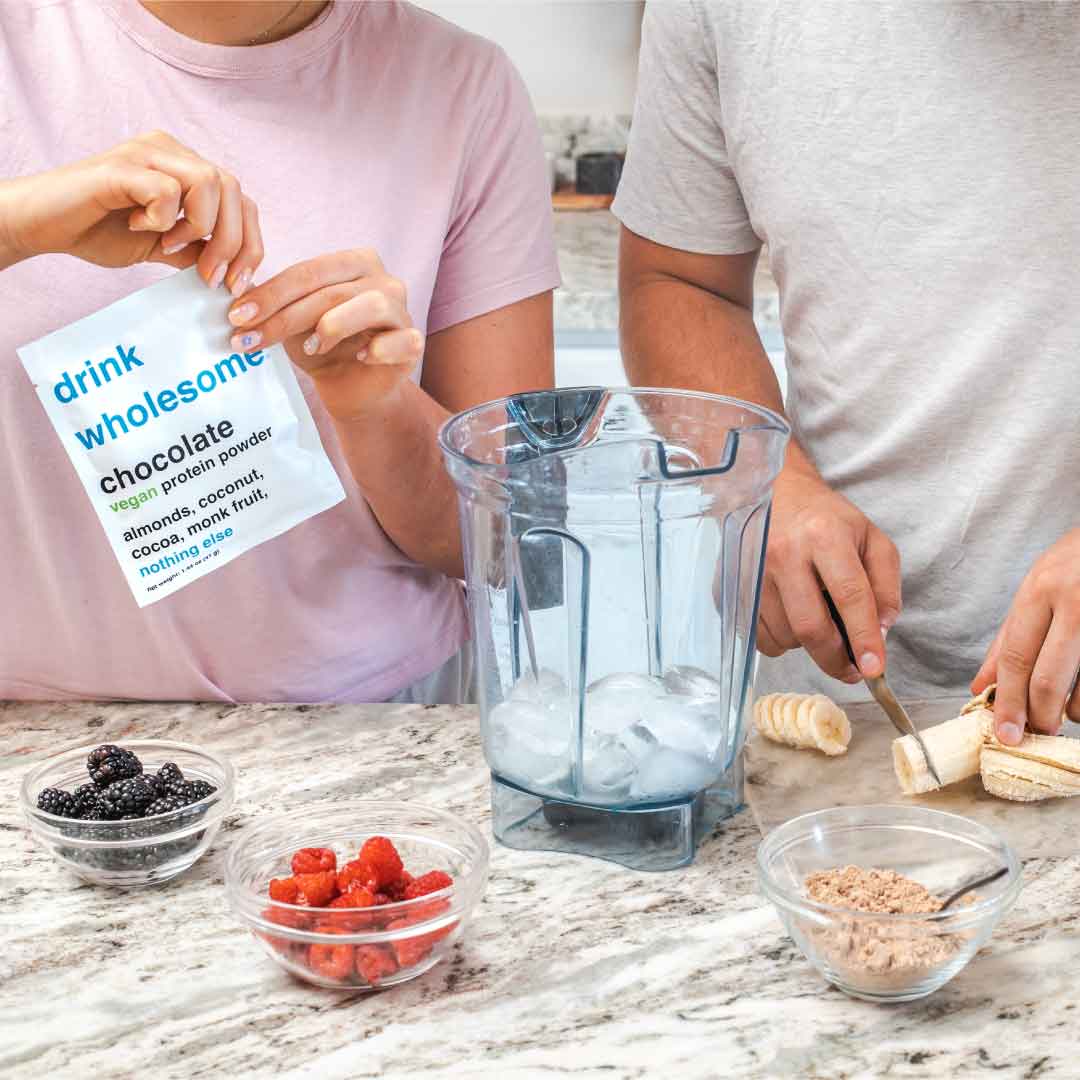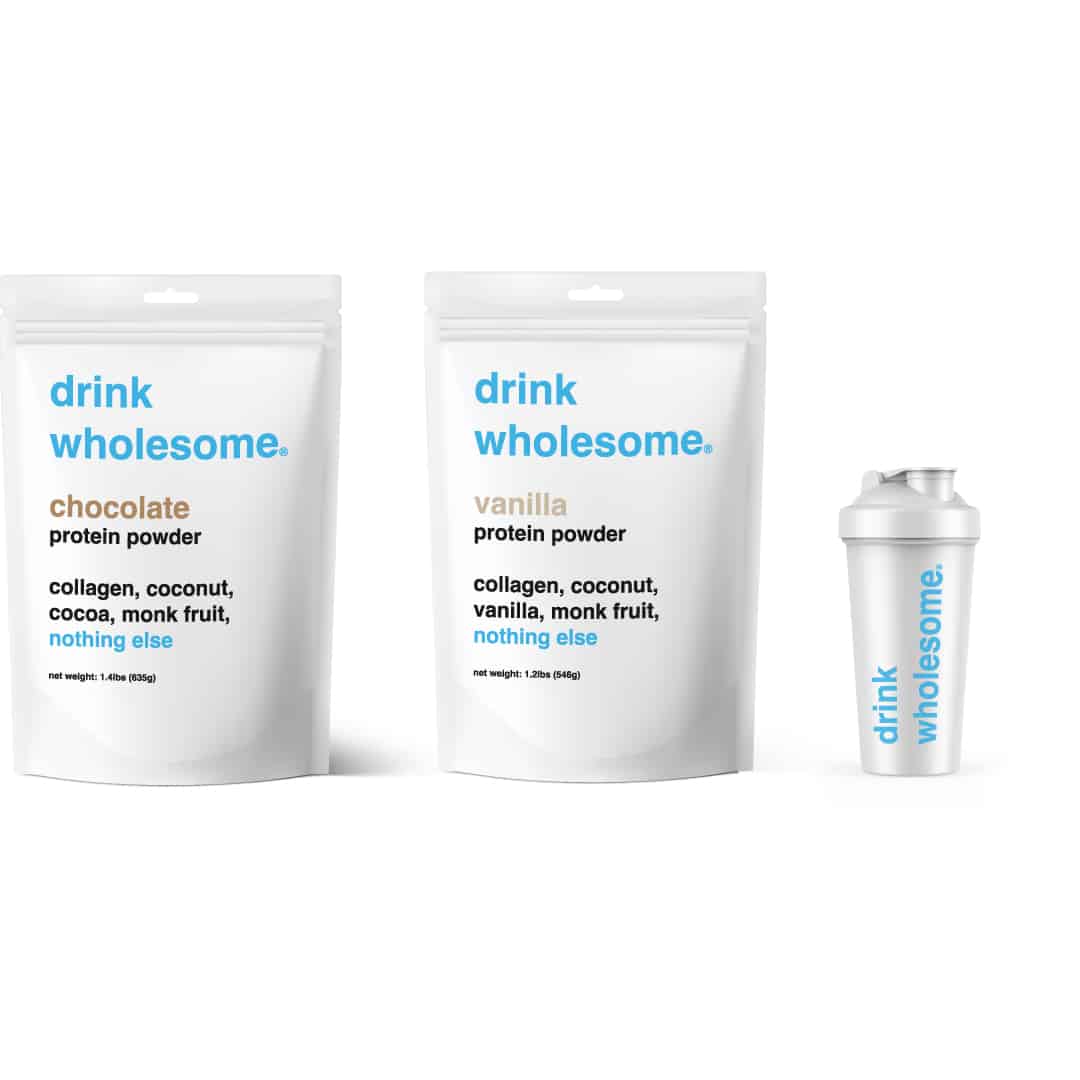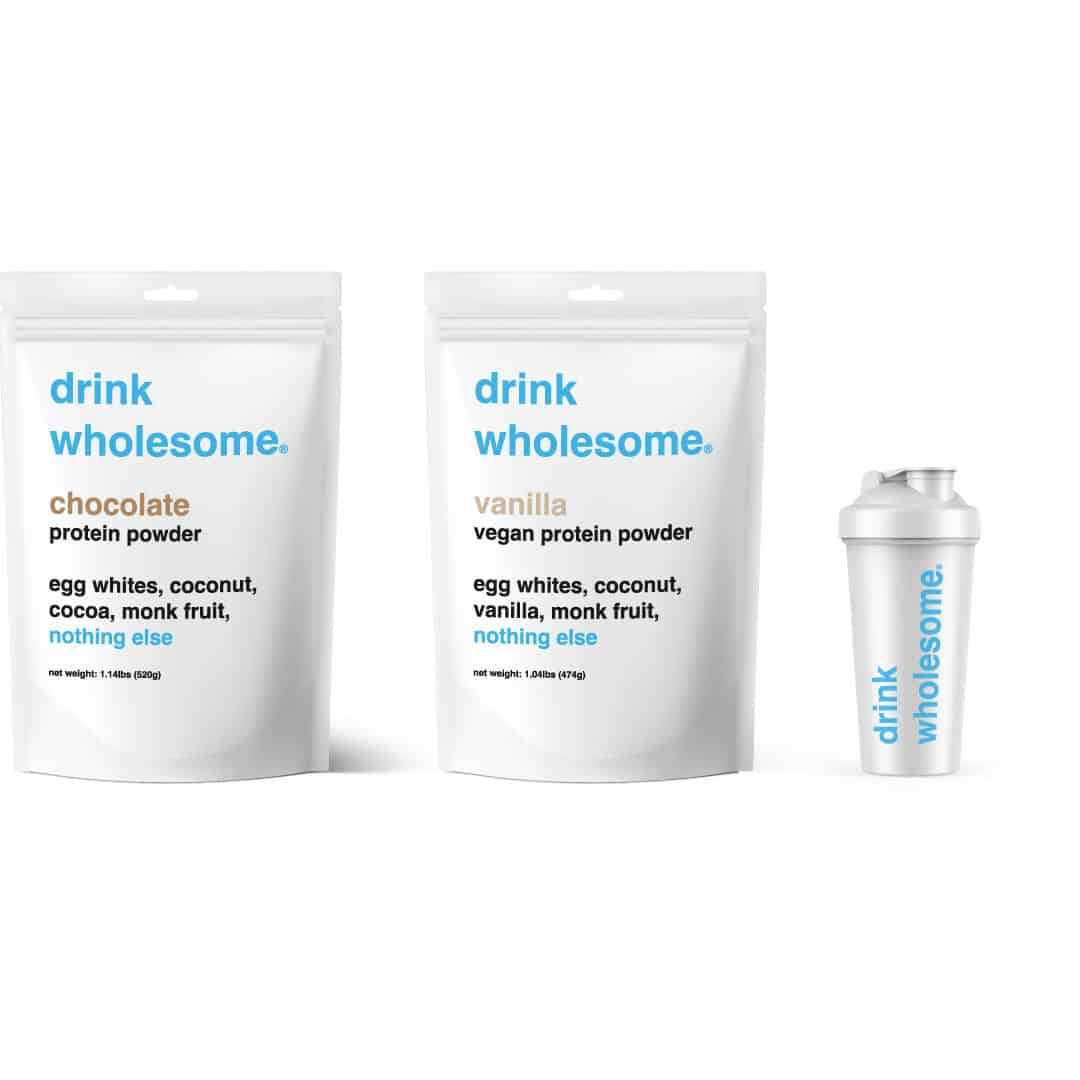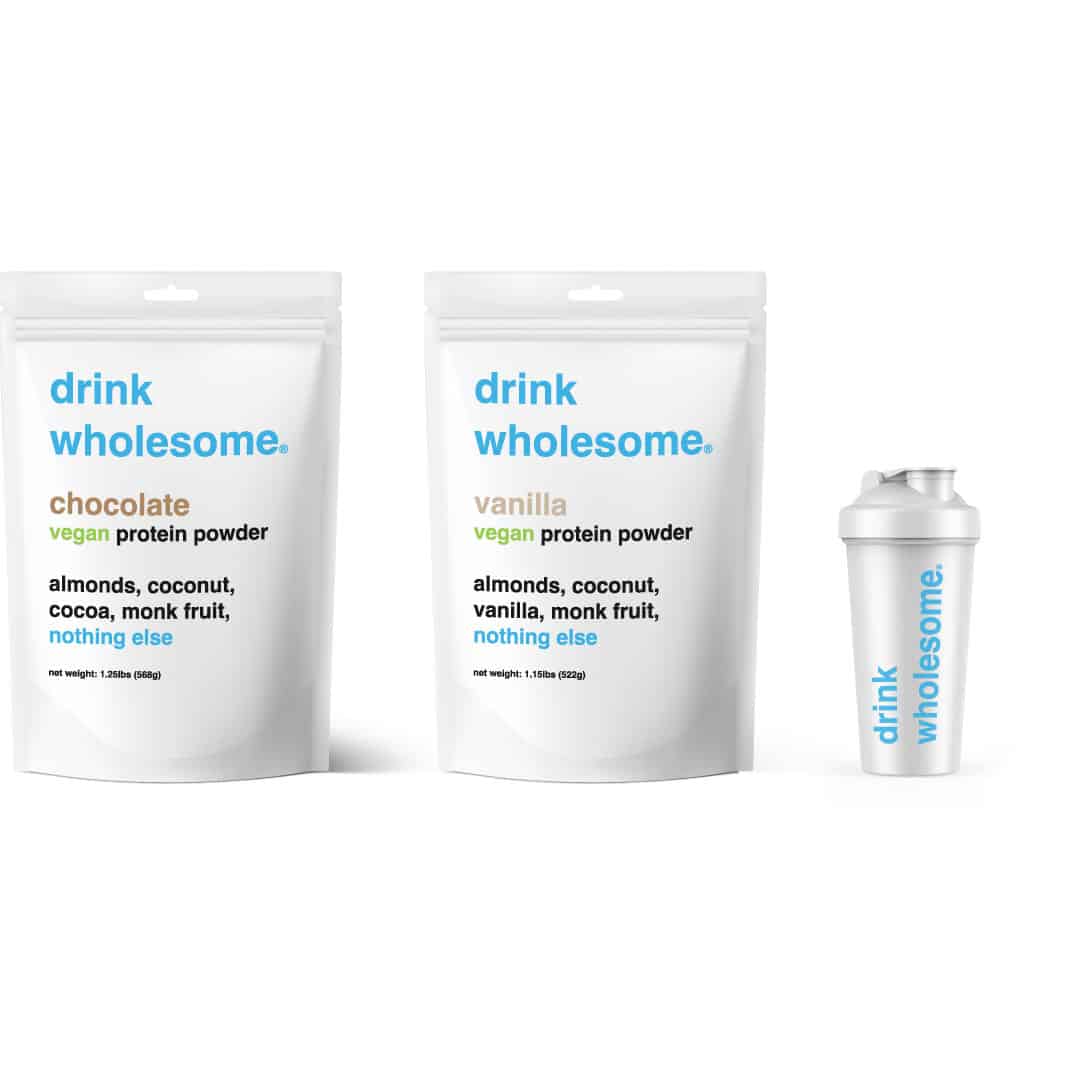What are the best protein shakes for ulcerative colitis?
If you are looking for the best protein shakes for ulcerative colitis, you have come to the right place. Learn how to supplement your dietary protein intake without upsetting your stomach.
What is ulcerative colitis?
Inflammatory bowel disease (IBD) is a term used to describe two conditions marked by ongoing inflammation in the gut: Crohn’s disease and ulcerative colitis. Both of these conditions bring about symptoms such as diarrhea and stomach pain, and they can lead to significant weight loss.
Ulcerative colitis occurs when your immune system attacks the lining of your large intestine (colon), causing inflammation and the formation of small open sores, known as ulcers. It can develop at any age, but is most likely to develop in people between the ages of 15 and 30.
Even though what you eat does not cause ulcerative colitis, doctors and dietitians acknowledge that food plays a crucial role in managing symptoms. Some foods can worsen symptoms, while others can help alleviate them and support the healing process. Paying attention to your diet and how your body reacts to various foods is therefore a vital aspect of living with ulcerative colitis
Are protein shakes good for ulcerative colitis?
Creating a diet specific to your condition, whether it is Crohn’s disease or ulcerative colitis, is complicated. There is no one IBD diet, and the foods that trigger symptoms may be different from the foods that trigger symptoms for someone else.
Moreover, specialized IBD diets are controversial because they are restrictive, sometimes contributing to weight loss and malnutrition. The best diet for ulcerative colitis is thus one that meets your individual nutritional needs and helps you manage your symptoms.
Despite the personalized nature of eating with IBD, there are several universal guidelines that anyone with IBD should follow. Eating enough protein, for instance, is important for someone with IBD.
For starters, the inflammation caused by ulcerative colitis increases your protein needs, sometimes by as much as 25%. It is thus recommended that ulcerative colitis patients eat 1-1.5 grams of protein per kilogram of body weight per day, which is a lot more than the 0.8 g/kg/day recommended for healthy adults.
Chronic inflammation can also impair your ability to absorb nutrients from food, which can lead to serious problems like weight loss and malnutrition. It is therefore essential to make eating protein a priority between flares. Adequate dietary protein intake will help prevent weight loss, muscle atrophy, and other complications.
Finally, dietary protein may help repair your mucosal intestinal barrier. Although the protein needs for mucosal healing after a flare are unknown, there is evidence that amino acids derived from dietary proteins play an important role in this process, serving as building blocks for macromolecule synthesis in the wounded mucosal area.
It is important to note that protein supplements should not replace other forms of dietary protein; you should try to get as much of your dietary protein intake as possible from sources like eggs, fish, legumes, meat, nuts, and seeds. Eating enough protein this way can be challenging for some people, however, which is where protein shakes can help.
Adding a protein shake to your diet is an easy way to increase your protein intake and fill in nutritional gaps. That said, not all protein shakes are created equal.
What are the best protein shakes for ulcerative colitis?
Many protein shakes and powders are made with ingredients that can cause painful side effects and long term health problems for someone with ulcerative colitis. Among these ingredients are food additives, dairy-based proteins, and protein concentrates and isolates.
Avoid food additives
Regularly eating emulsifiers, thickeners, sugar substitutes, and other additives can not only upset your stomach, but also alter the composition of your gut microbiome – the collection of microorganisms living in your gut. This can lead to gut dysbiosis, which is linked to the development of ulcerative colitis.
Research shows that a healthy gut microbiome modulates the production and secretion of mucins and stratification of the mucus layers that make up the intestinal mucosal barrier. An unhealthy, or dysbiotic, gut microbiome results in the weakening of this barrier, thereby causing inflammatory damage. In case you were wondering, the intestinal mucosal barrier is a semipermeable membrane that allows you to absorb essential nutrients from food and prevents bacteria and other pathogens from entering your bloodstream.
Researchers have also found that a healthy gut microbiome contributes to inducing the expansion of regulatory T cells that reduce intestinal inflammation by mediating repair of the intestinal mucosal barrier. A dysbiotic gut microbiome thus makes you both more susceptible to inflammation, and less able to fight it. Here is a list of the most common food additives in protein supplements:
acacia fiber, acacia gum, acesulfame potassium, artificial flavors, ascorbic acid, aspartame, calcium carbonate, carrageenan, cellulose gum, dextrin, dicalcium phosphate, dipotassium phosphate, erythritol, gellan gum, guar gum, gum arabic, inulin, locust bean gum, maltodextrin, mono- and diglycerides, ‘natural’ flavors, rice bran extract, rice dextrin, rice hulls, rosemary extract, silica, silicon dioxide, sodium alginate, sodium bicarbonate, soluble corn fiber, soy lecithin, sucralose, sunflower lecithin, tocopherols, tricalcium phosphate, xanthan gum, xylitol, zinc oxide
Avoid dairy-based proteins
Dairy-based proteins like whey and casein, although not an issue for everyone, can cause side effects like bloating and diarrhea. This is in part because they contain lactose, a sugar most adults cannot fully digest.
Avoid protein concentrates and isolates
Most protein powders are made from protein concentrates and isolates, which have been mechanically and or chemically stripped of everything but the protein, including the enzymes, fiber, and other natural digestive aids that help you break them down. As a result, they can cause digestive issues and possibly even disruptions to your gut microbiome.
Finding a protein powder free from food additives, dairy-based proteins, and protein concentrates and isolates is hard. In fact, 99% of protein supplements contain one or more of these problematic ingredients. This is why we created drink wholesome. Keep reading to learn more about why we make the best protein shakes for ulcerative colitis.
drink wholesome makes the best protein shakes for ulcerative colitis
We make the best protein shake for ulcerative colitis because we use a short list of simple ingredients free from food additives, dairy-based proteins, and protein concentrates and isolates.
Our ingredients

egg whites
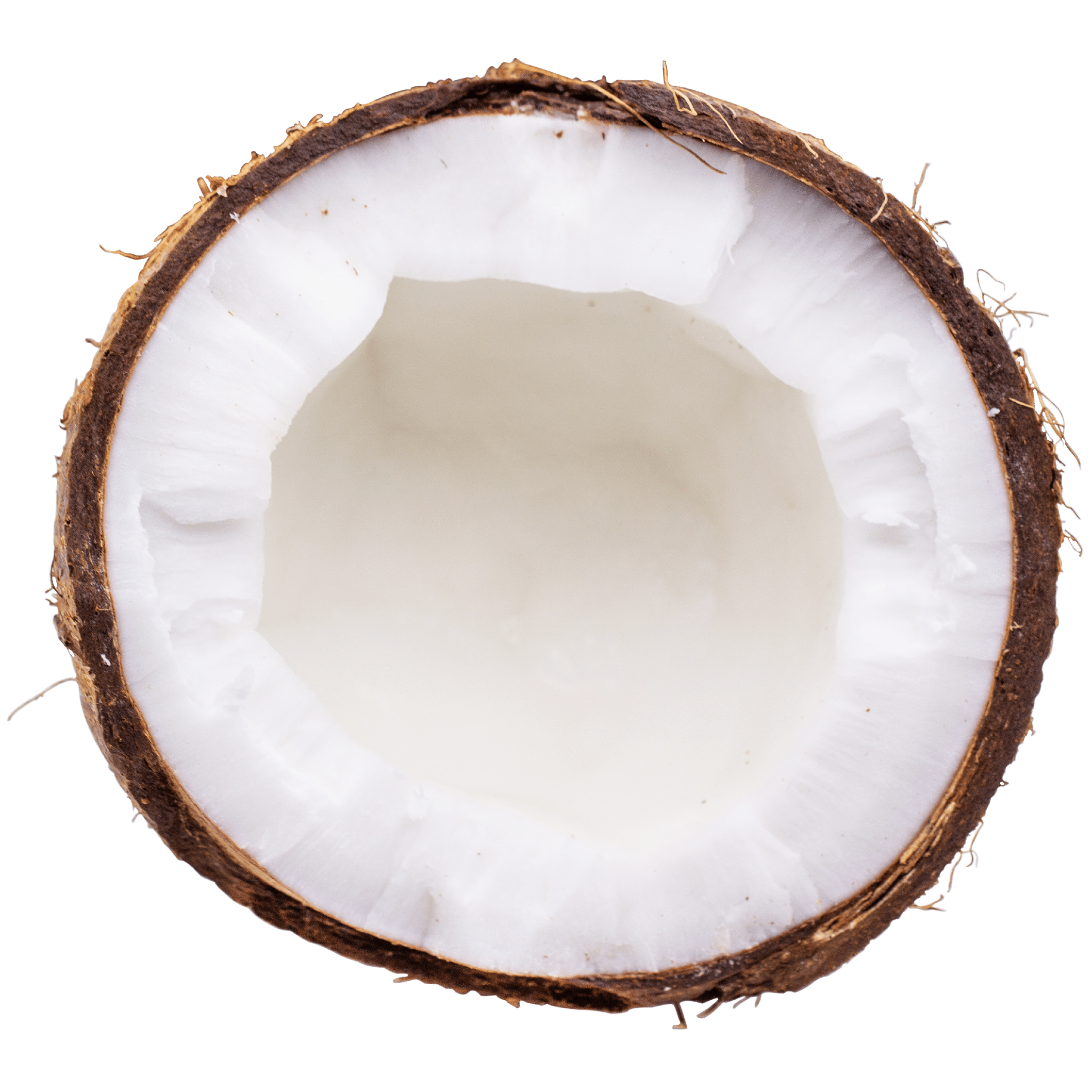
coconut

vanilla

monk fruit
NOT our ingredients
-
acacia gum
-
acesulfame potassium
-
artificial flavors
-
carrageenan
-
erythritol
-
guar gum
-
inulin
-
maltodextrin
-
'natural' flavors
-
silica
-
soy lecithin
-
sucralose
-
xanthan gum
-
xylitol
Note that instead of using protein concentrates or isolates, we use whole food protein sources like collagen, egg whites, and almonds, which are easier to digest and absorb. Whole food protein sources also have unique digestive benefits: collagen can reduce bloating and improve digestive symptoms, egg whites can help restore your mucosal intestinal barrier, and almonds can improve the composition of your gut microbiome.
It follows that our customers experience fewer digestive issues with our protein powder than with any other type of protein supplement. Order samples to see for yourself. Or, learn more about the best protein powder for IBD.
Reviews
Mimi
6 days ago
Verified Purchase I've spent the past decade searching for the perfect protein powder, and I've finally found it!!!! Not only does it make me feel incredible, but it's also transformed my fitness recovery in ways I never thought possible. Thank you drinkwholesome for changing the game and helping me feel my best! <3
Sammi
6 days ago
Verified Purchase As someone who is struggling with perimenopause and a leaky gut due to gallbladder removal over 20 years ago, I’ve found that my body has had adverse reactions to various protein powders over the years. Whether the claim is that it tastes great (which they rarely do, often with a grit and odd aftertaste), or they claim to be “clean” when it is loaded with sugar and ingredients with tough-to-pronounce names that oftentimes cause gas and bloat, it’s been a challenge finding the right protein supplement. I’ve sampled three of your egg white powders, with whole milk, and my stomach actually felt great. I remained full during the day when I normally would have snacked, and I feel good knowing that the 5 simple ingredients are those that truly nourish my body. I’m on a mission to make the remaining 4 months of my 48th year great and enter chapter 4.9 my healthiest yet and I’m confident I may have found my pot of gold.
Paula
2 months ago
Verified Purchase Drink Wholesome is a protein drink I actually look forward to drinking every day. My nurse practitioner recommended it as a great way to get more protein into my diet. Purchased the new chocolate protein powder and I absolutely love it. It's reassuring to know I'm drinking simple ingredients that I can pronounce and keeps my gut happy at the same time.
Frequently asked questions
Collagen vs egg white vs almond protein powder?
You may have noticed that we make three types of protein powder: collagen protein powder, egg white protein powder, and vegan almond protein powder. As long as you are eating a balanced diet, any type of protein powder can help you boost your protein intake. Just pick the type that best suits your dietary needs and personal preferences.
Protein powder vs meal replacement powder?
You may have noticed that we make protein powders and meal replacement powders. The difference between protein powders and meal replacement powders is the nutrition content. Protein powders are high in protein and low in everything else, whereas meal replacement powders contain fats, carbs, and protein because they are intended to replace the nutritional value of a healthy meal.
Learn more
My name is Jack and I created drink wholesome because I was sick of protein powders that upset my stomach. Read my story, check out my short list of simple ingredients, and browse reviews from other customers to learn more.
Protein Rice Krispies Treats
PREP TIME
15 min
COOK TIME
0 min
SERVES
2+
Ingredients
- 4 cups Rice Krispies cereal
- 1 10oz bag marshmallows
- 1 cup drink wholesome protein powder
- 3 tablespoons butter
Instructions
In a large pot, melt the butter over low heat. Add the marshmallows, and stir until the mixture is smooth. Remove the pot from the heat, and incorporate the protein powder. Add the Rice Krispies, stirring until combined. Transfer the mixture to a 9×13 inch greased pan. Let your Protein Rice Krispie Treats sit for 30 minutes before eating.
Disclaimer
This content is not intended to be a substitute for professional medical advice, diagnosis, or treatment. drink wholesome is not intended to diagnose, treat, cure or prevent any disease.


